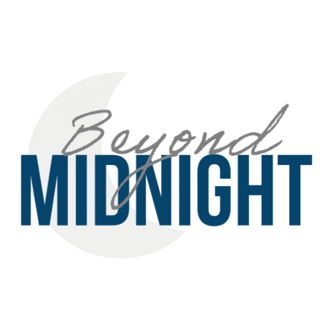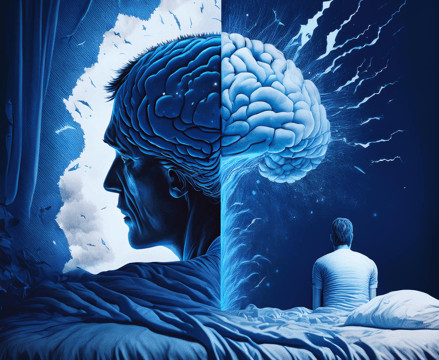So, you’ve got ADHD, or maybe you’re wondering if you do because you attention span rivals that of a gold goldfish. Either way, here’s something you might not know, ADHD and sleep disorders are like those toxic exes who just can’t quit each other, they are intertwined in ways that can make your nights restless and your days feel like one long caffeine fuelled struggle. But don’t hit snooze in this, understanding the connection between ADHD and sleep is key to managing both.
Let’s break down this tangled relationship and figure out how you can start sleeping like a champ and, in turn, manage your ADHD more effectively.
1. The ADHD and Sleep Tango
If ADHD is the unpredictable wild child of the brain, then sleep disorders are its equally rowdy sidekick. Together, they can wreak havoc on your life, turning your nights into a restless mess and your days into a groggy haze. But there’s more to this dynamic duo than meets the eye.
ADHD messes with your brain’s ability to regulate neurotransmitters like dopamine, which are essential for both focus and sleep. The same brain regions that should help you stay on task during the day also need to power down at night. When these systems are out of sync, both your focus and sleep take a hit.
2. Sleep Problems: Making ADHD Worse, One Yawn at a Time
Think ADHD makes it hard to concentrate? Try doing that on zero sleep. Lack of sleep doesn’t just make you tired—it supercharges your ADHD symptoms, making it even harder to focus, sit still, or manage impulsivity. It’s a vicious cycle that feeds on itself.
When you don’t get enough sleep, your brain’s executive functions—like memory, focus, and impulse control—basically go on strike. These are the very skills you need to manage ADHD, so when sleep deprivation kicks in, it’s like pouring gasoline on a fire. Cue more forgetfulness, impulsivity, and hyperactivity. It’s like your brain is trying to run on fumes.
3. How to Win the ADHD-Sleep Battle
So how do you break up this toxic relationship between ADHD and poor sleep? With a game plan that covers all the bases, from sleep hygiene to smart medication use. Think of it as your battle strategy, where sleep becomes your secret weapon.
Improving sleep isn’t just about going to bed earlier. It’s about setting up your lifestyle and habits to give your brain the best shot at success. Regular sleep times, a chill pre-sleep routine, and the right timing of ADHD meds all help regulate your brain’s internal clock. And when your brain’s on board, both sleep and focus become much easier to manage.
- Sleep Like a Pro: The first step to better sleep is acting like you’ve got this adulting thing figured out. Set a consistent bedtime and wake-up time, even on weekends. Create a bedtime routine that doesn’t involve screens or doom-scrolling. A book, a warm bath, or some calming music can help signal your brain that it’s time to wind down.
- Timing Is Everything: When it comes to your meds, timing is crucial. Taking them too late in the day can keep you up at night. Talk to your doctor about the best time to take your medication to avoid disrupting your sleep. You might also explore non-stimulant options or extended-release formulations that wear off by bedtime.
- CBT-I, Not DIY: If sleep continues to evade you, Cognitive Behavioural Therapy for Insomnia (CBT-I) could be your solution. This therapy helps you rewire negative thoughts about sleep and implement better sleep practices. It’s especially helpful if you’re constantly battling insomnia.
- Handle the Other Sleep Stuff: If you have sleep apnea or restless legs syndrome (RLS), these conditions need specific attention. CPAP machines can help manage sleep apnea, ensuring you breathe easy through the night. And if your legs feel like they’re constantly ready to run a marathon, medications or supplements might be needed to calm them down.
- Optimise Your Sleep Cave: Your bedroom should be a sanctuary for sleep, not a multi-purpose disaster zone. Keep it cool, dark, and quiet. Invest in comfortable bedding and keep distractions to a minimum. And for the love of all that’s restful, put your phone away at least an hour before bed.
- Move It, But Not Too Late: Regular exercise is a game changer for both ADHD and sleep, but timing matters. Avoid intense workouts close to bedtime—they might leave you too energised to sleep. Save the heavy lifting for earlier in the day.
- Snack Smart: Late-night munchies can derail your sleep. Steer clear of caffeine, sugar, and heavy meals right before bed. Instead, opt for a light snack with tryptophan, like a banana or some turkey, to help promote sleepiness.
- Melatonin: Friend, Not Foe: If your sleep-wake cycle is out of whack, low-dose melatonin might help you reset. Just remember, melatonin isn’t candy—talk to your doctor before starting it to ensure you’re using it correctly.
- Parents, Take Note: If you have kids with ADHD, they’re in this too. Helping them establish and stick to a bedtime routine can significantly improve their sleep—and yours. Educate yourself on sleep hygiene, and pass these habits along to your little ones.
4. Tag Team with the Pros
Managing ADHD and sleep disorders is a team effort. Get a squad of sleep specialists, psychologists, and ADHD experts on your side. Together, they can help you tackle both issues without losing your sanity.
Sleep and ADHD are complex beasts, and managing them effectively often requires a multidisciplinary approach. Regular check-ins with your healthcare provider can help you fine-tune your treatment plan, especially if your medications are messing with your sleep. Working with a team of specialists ensures you’re addressing the problem from all angles, which increases your chances of success.
The Bottom Line
ADHD and sleep disorders are like those annoying frenemies you never asked for, but you can manage them with the right strategy. By getting a handle on your sleep, you might find that your ADHD symptoms become a lot more manageable. Who knows, you might even start to enjoy mornings—or at least tolerate them with fewer cups of coffee.
Notice: I am not doctor, medical professional or licensed healthcare provider. The content of this article is provided for information purposes only and is not intended to be a substitute for professional medical advice, diagnosis or treatment. The information provided in this blog is based on personal experience and research only.




